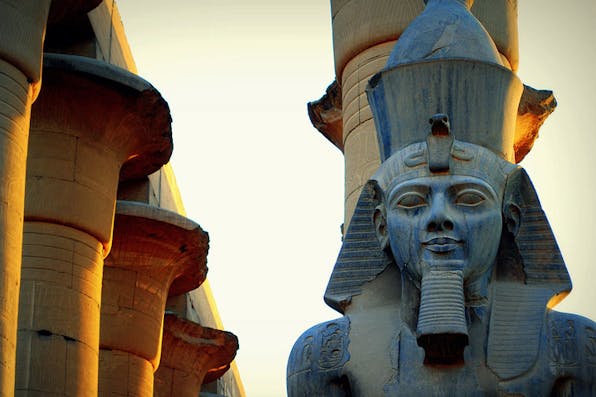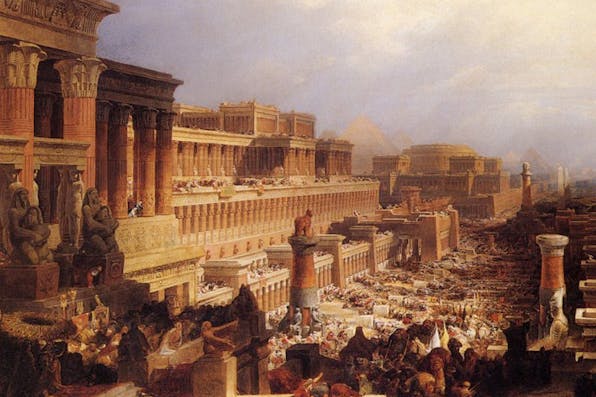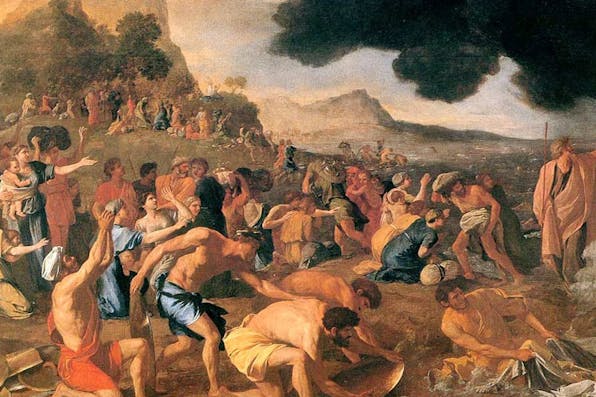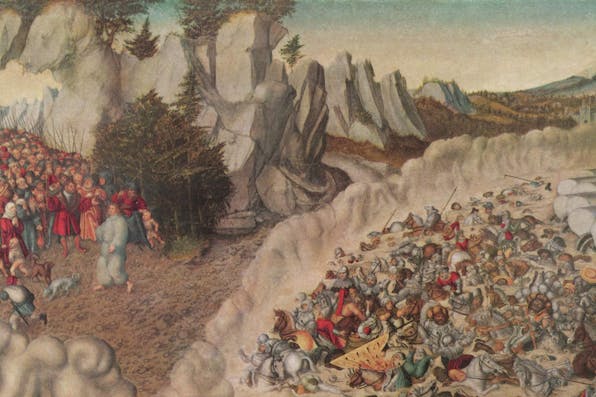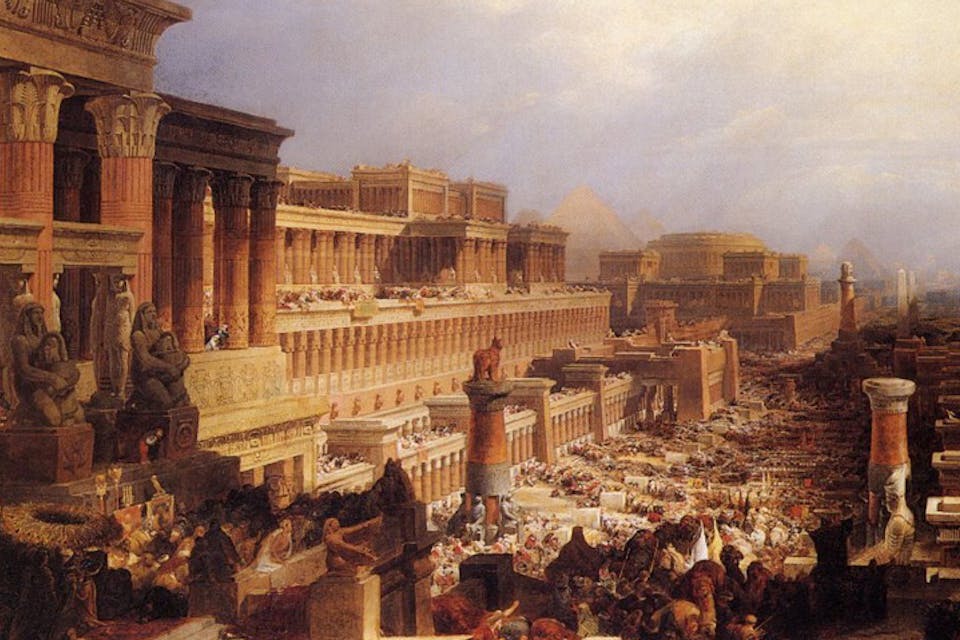
March 12, 2015
The Exodus: Case Not Proved
The exodus as we know it didn't happen. But it's a great story.
To the question asked by Joshua Berman, “Was There an Exodus?,” the usual answer of modern biblical scholarship is: no. Berman, a professor of Bible at Bar-Ilan University, adduces arguments and evidence to suggest instead that a plausible, if qualified, answer is yes. As a biblical scholar, and as a liberal Jew, I’m tantalized by the prospect of new evidence for the exodus. But what Berman produces doesn’t convince me.
Some part of Berman’s analysis relies, as he acknowledges, on the work of other scholars, all of whom are cited by name in the forthcoming academic version of his Mosaic essay. Thus, he tells the story of the military camp of the Egyptian pharaoh Ramesses II (“Ramesses the Great,” reigned 1279-1213 BCE) at the battle of Kadesh in 1274. Bas-relief depictions of that camp on monuments built by Ramesses to memorialize his victory turn out to bear a striking resemblance to, in Berman’s words, the “design of the Tabernacle that served as the cultic center of the Israelites’ encampment in the wilderness” (Exodus 25-29).
This is not new, and Berman does not claim it is. Proceeding from such visual parallels, he then asks whether there might also be textual similarities between, on the one hand, the hieroglyphic inscriptions on those same monuments and the biblical narrative of the exodus and the clash at the sea between pharaoh’s pursuing armies and the escaping Israelites (Exodus 14-15). Examining the two sources at length, he arrives at the conclusion that “the totality of the parallels, plus the large number of highly distinctive motifs that appear in these two works alone” does indeed suggest a connection between the two. The biblical text, he writes, is directly dependent on the Egyptian account of the battle of Kadesh, and in his view represents an act of cultural appropriation and defiance, “putting forth the claim that the God of Israel had far outdone the greatest achievement of the greatest earthly potentate.”
